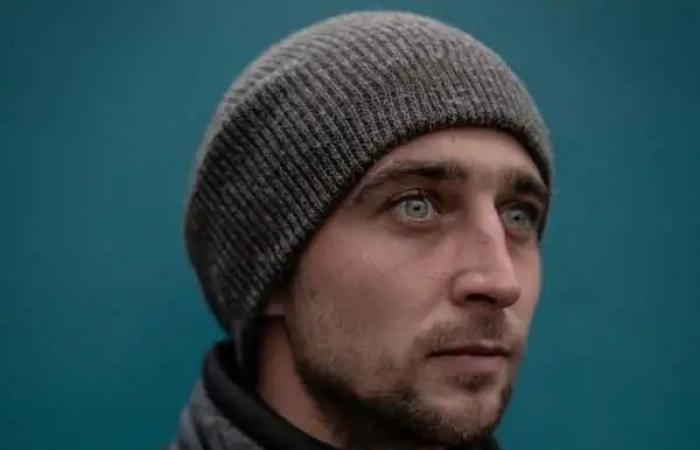The first city in France, after Prague, Vilnius, Warsaw, Amsterdam, Sofia, Plovdiv and Helsinki, Rennes hosted a cycle of meetings, exhibitions and public debates in November on the theme “Facing war – European dialogues”. A way, from the far west of the continent, to reflect on the impact of the return of war to Europe.
After Prague, Vilnius, Warsaw, Amsterdam, Sofia, Plovdiv and Helsinki, the French Institute, dedicated to the promotion abroad of French culture, while promoting artistic exchanges and dialogue of cultures, co-organized, from November 7 at 1is December in Rennes, the first cycle on French soil of meetings, exhibitions and public debates on the theme “Facing war – European dialogues”, on the challenges that European societies and states have faced since the Russian invasion of Ukraine, but also for more than a year in the Middle East.
READ ALSO: Pierre Lellouche: with the situation in Ukraine, “it is not sure that the EU will survive the test that awaits it”
The choice of most of the places which preceded Rennes was obvious: all these countries have experienced in the past and in their flesh, to varying degrees, the brutal authoritarianism, even the expansionism of Moscow.
Particularity of the Rennes stage, located in the far west of the continent: the mobilization of numerous local actors, under the impetus of the Champs Libres, an imposing local cultural establishment, bringing together a library, a Science Space, the Musée de Bretagne , several exhibition and meeting rooms where the debates were held, in partnership with Ouest-France, the largest national daily newspaper in France.
A diversity of cultural actions
A large audience, all age groups combined, flocked to the meetings, which above all gave voice to the testimonies and points of view of Ukrainian personalities, faced with a total war in their country for almost three years – notably the philosopher Constantin Sigov, from Mohyla University in kyiv, but also the journalist, academic and activist Tetyana Ogarkova, as well as journalists, or even victims of the occupation who became investigators or documenters of war crimes in the hope to one day obtain justice.
While the ethnologist Romain Huët, lecturer at the University of Rennes, and author of The war in the lead, on the front from Syria to Ukraine (PUF, 2024)described the devastating effect of conflicts on societies, but pointed to solidarity, under the Russian bombs in the city of Kharkiv, Constantin Sigov decided: “ Ukraine, through its courage and tenacity, has proven that it is European”.
Two photographers from the MYOP agency, Michel Slomka and Chloé Sharrock, who exhibited their most eloquent photos of the conflict, accompanied by texts by Ukrainian authors, explained their conception of the role of war reporters: this is also the striking photo of a young Ukrainian from Kherson victim of torture, by Chloé Sharrock, who illustrated the poster of these dialogues.
READ ALSO: Ukraine, Baltic… Between Joe Biden and Vladimir Putin, this proxy war that is shaking Europe
A debate on “ What can justice do in the face of the disorders of the world? » between jurists and specialists in international justice, including Céline Bardet, from the NGO We are not weapons of war underlined the hiatus between the long time frame of international justice and the immediate need to document war crimes, “ in order to try to meet the need to relieve survivorss ».
The last conference had the theme “What do Ukrainians dream of? », while in the majority of the country, and with increasing intensity, their nights are shattered by alerts and bombings. How to write, in these conditions, asked the poet, military doctor and senior corporal of the Ukrainian army, Yaryna Tchornohouz. “ Resistance is very rooted in our history, concluded Professor Constantin Sigov. It is very important for us, but also for Europe, by defending our freedom we are defending theirs. We must write to de-Putinize the present and Ukrainianize the future. »
READ ALSO: “Sentinels” on OCS: Ukraine soon to be abandoned by Trump but not by fiction
But if the final weekend in Rennes largely gave a voice to the Ukrainians, victims for almost three years of the terrible aggression of the Russian army, its specificity was also to take side steps towards other war experiences : in addition to the testimony of Mazen Darwish, president of the Syrian Center for Media and Freedom of Expression, several Bosnian voices came to provide their perspective, thirty years after the Dayton Accords which put an end to this terrible conflict. Those of Elma Hasimbegovic, director of the History Museum of Bosnia and Herzegovina, or of the writer and philosopher Igor Stiks, a native of Sarajevo, convinced that “ the war in former Yugoslavia could have been prevented » and very worried about the current dissensions within the European Union.






